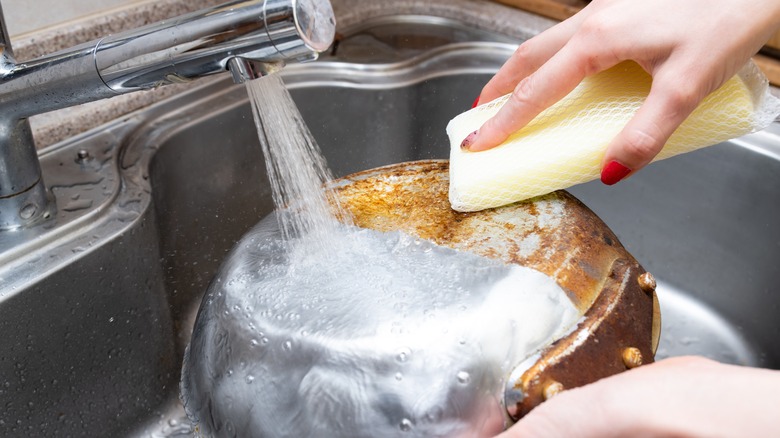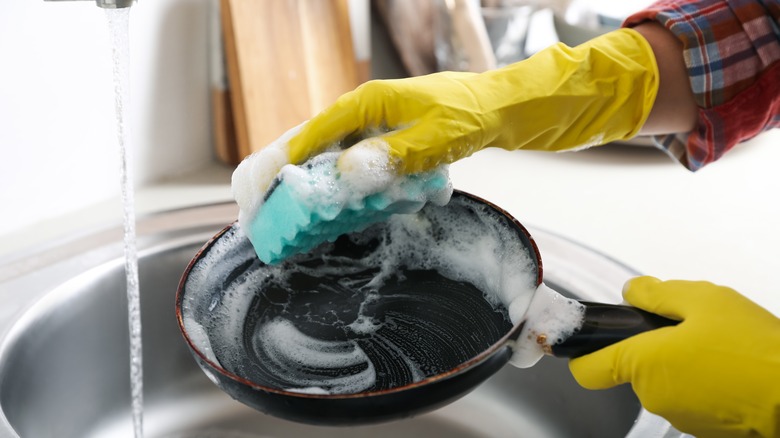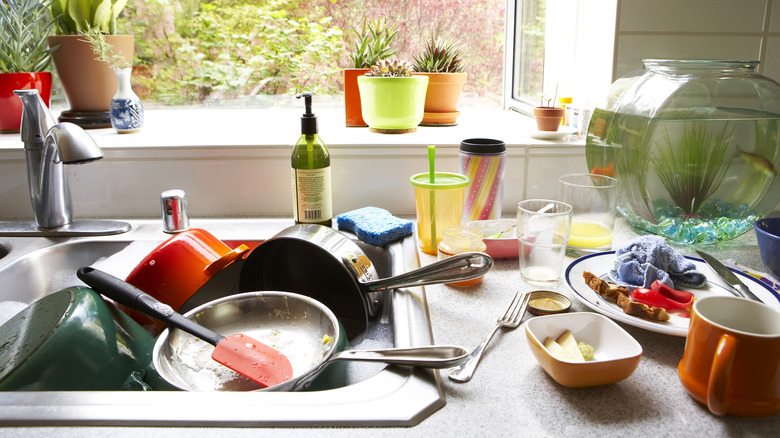The Common Temperature Mistake To Avoid When Cleaning Pots And Pans
Caring for your kitchen cookware is more than important, it's crucial. The better you take care of your cookware, the better it will take care of you. From brass pans to stainless steel ones to cast iron pans, it's important to know the proper steps for maintaining your cooking vessels. One of the things they always tell you is to make sure you don't let pots and pans sit for hours, specifically when they are still dirty from using them to cook.
In general, this is good advice, but there are limits to it. While you definitely shouldn't let your pots and pans soak for hours, you also shouldn't wash them while they're still hot. Washing them while they are still hot can potentially ruin them. Thermal shock is the scientific process behind the damage that hot pots and pans can experience if they are washed while they are still hot.
Metal warps under rapid temperature change due to thermal shock
Thermal shock occurs when something is quickly cooled or heated. This causes the object to rapidly change shape, which can lead to damage. It's the reason why you should never rapidly change the temperature of a glass, such as by pouring boiling water into it. Glass is a poor conductor of heat, meaning it may crack or shatter if it comes into contact with extremely hot liquids.
Metal is a better conductor of heat than glass, so your pots and pans aren't likely to explode. But it's not immune from the principles of thermal shock, and it can still warp when rapidly exposed to temperature change.
The same principle of why forged blades often warp when exposed to the quenching process — in which hot blades are rapidly cooled — also applies to your stainless steel frying pan. This can lead to some pretty persistent issues, including ones that threaten your safety.
Let your pots and pans cool before cleaning them
You don't want your pots and pans to warp. A warped pan will heat food unevenly. Additionally, it may not solidly sit on the burner, creating the possibility of it falling off of the stove. This could be potentially dangerous, especially if it falls off the stove mid-fry.
Happily, there's a very simple solution: just wait for your pots and pans to cool down. They can still be lukewarm when you clean them — you don't need to wait for all of the heat to fully dissipate — but you don't want to see steam coming off them when the water hits. You're going to need time to eat anyway; why try to clean them before you're even done with dinner?
Proper kitchen safety procedures are about more than just knowing how to hold a knife and not grab a hot pan out of the oven with your bare hands. They can sometimes seem tedious, but if you pay attention to the more subtle aspects of kitchen care, not only will you be safer, but your experience will be better due to your longer-lasting cookware.


